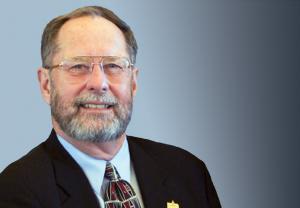The new grid will be driven by opportunities for electric utilities and customers to monetize their economic opportunities.
Tom Sloan is serving his eleventh term in the Kansas House of Representatives. He earned a doctorate in political science from the University of North Carolina at Chapel Hill and served on the Department of Energy’s Electricity Advisory Committee and the GridWise Architecture Council. He is a leading member the National Conference of State Legislatures’ and Council of State Governments’ energy and environment committees. He also serves on the Federal Communications Commission’s Intergovernmental Affairs Committee.
Legislators do not make investments in electric grids nor do we have to operate the systems, but we are as responsible for electricity affordability, reliability, resiliency, and enhanced customer options as are the utilities. This shared responsibility extends beyond the establishment of societal goals that require actions by utilities (e.g., renewable energy and/or energy efficiency requirements), it extends to establishing how utilities and customers can monetize the opportunities created by technological innovations and customer preferences.

Opportunities to monetize technological capabilities, customer preferences, and regulatory and legislative policy directives will exist and become more urgent, however the Clean Power Plan fares at the U.S. Supreme Court. From a policy-maker's perspective, it is important that we permit utilities to become more efficient and develop alternative revenue streams to offset customer losses, flat growth, and increasing O&M demands. Utilities also must respond to the stated goal of sixty percent of Fortune 100 companies and Presidential and Congressional directives to the U.S. military to become more energy efficient and greener. The public through opinion polls and purchasing patterns espouse the same values as do investments in distributed generation by residential and commercial customers.

